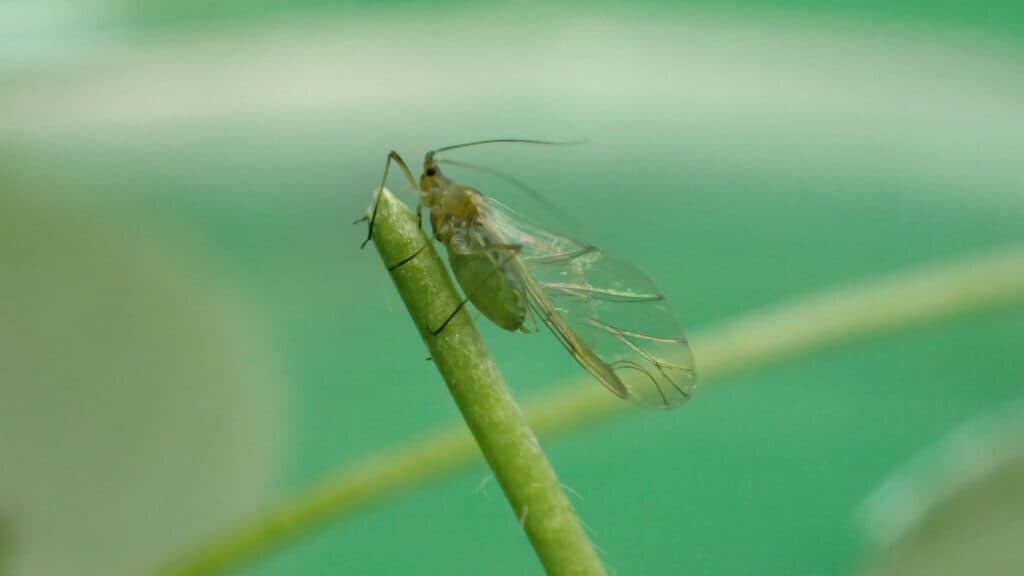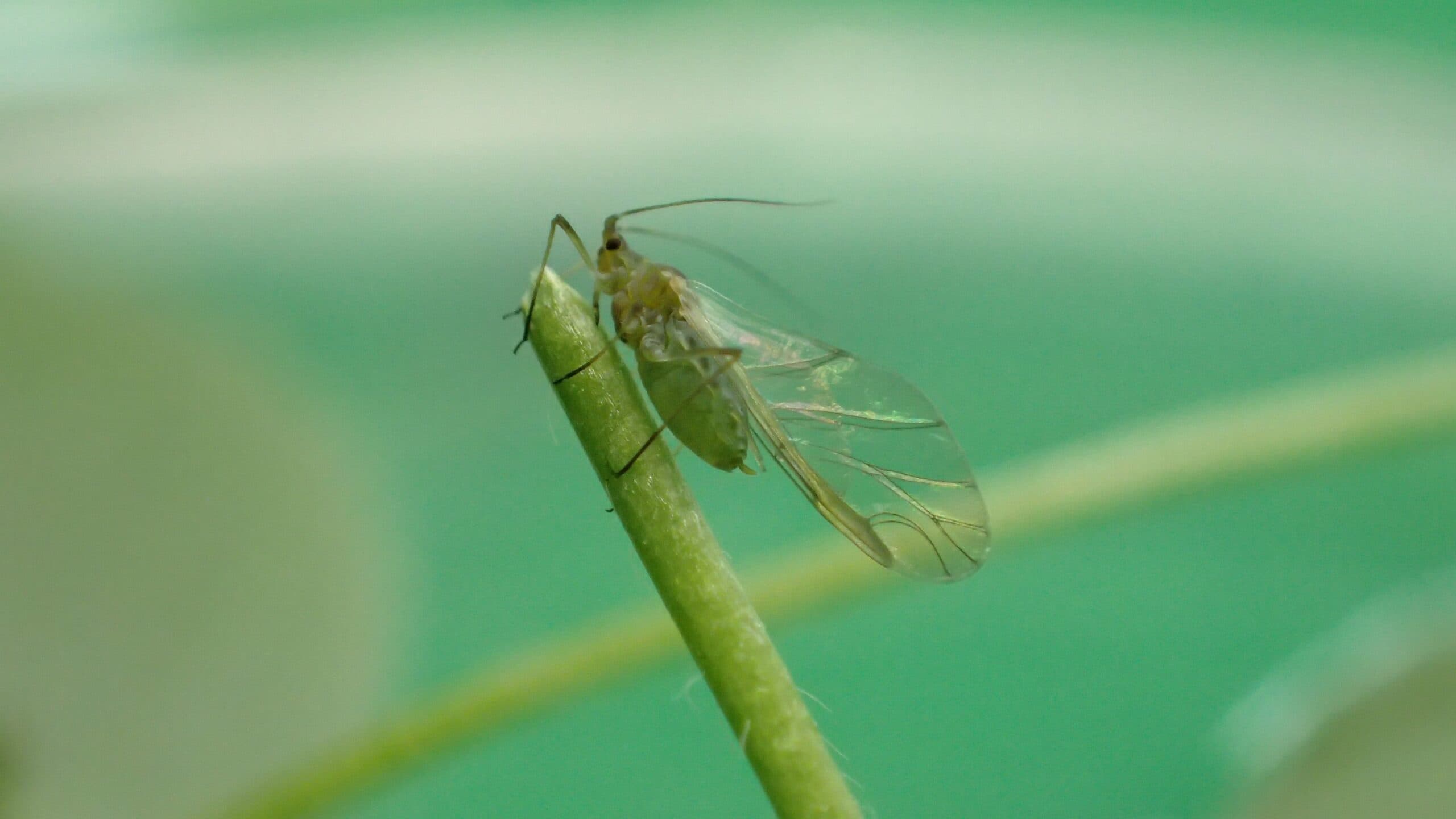Bluegreen aphids (Acyrthosiphon kondoi) are a major pest of lucerne and other legume crops. These tiny pests feed directly on the foliage, damaging the plant and spreading harmful viruses through infected crops. Currently, lucerne seed growers have access to a limited range of insecticides to control bluegreen aphid populations. During the past two years, several growers and agronomists in New South Wales and South Australia have reported that currently registered insecticide sprays are no longer effectively controlling bluegreen aphid populations.
Dr Evatt Chirgwin, Cesar Australia is leading the AgriFutures supported project on Understanding bluegreen aphid resistance in the pasture seeds industry. Dr Chirgwin is testing bluegreen aphid populations collected from key lucerne-growing regions in New South Wales and South Australia for signs of evolutionary resistance.
“Our previous investigations through collaborative research with CSIRO, and funded by the Grains Research and Development Corporation, suggest these field populations may have evolved resistance to insecticides,” said Dr Chirgwin.
“So far, results from this project strongly suggest that all three field-collected populations of bluegreen aphids have evolved resistance to organophosphates (omethoate and chlorpyrifos) and carbamates (pirimicarb). These field populations were collected in 2020 and 2021 after we received reports from producers of chemical control failures. We will now test for bluegreen aphid resistance to a third group of insecticides – pyrethroids.”
While the evolution of insecticide resistance is reasonably common in some species of crop pests, such as green peach aphids, the resistance reported in bluegreen aphids as part of this project appears to be the first of its kind in this species.
“To better understand the mechanism underlying insecticide resistance in bluegreen aphids, we are also undertaking some preliminary molecular work. To do so, we are exploring whether any shifts in the DNA of the bluegreen aphid samples collected from our three field populations differ to a reference population of bluegreen aphids, which we know remains susceptible to current chemical control options.”
“A better understanding of what molecular mechanisms create resistance in bluegreen aphid populations will help us determine the likelihood these populations will have cross-resistance to other insecticides with different modes of action.”
The project team is also keen to determine just how far resistance may have spread to get a clear understanding of the potential impact.
“We’d like to develop a ‘map of resistance’ so to speak, so we can better understand which regions are most at risk during the coming season,” said Dr Chirgwin.
Growers experiencing issues with bluegreen aphid control are encouraged to contact Cesar Australia to help with the development of this resistance map.












